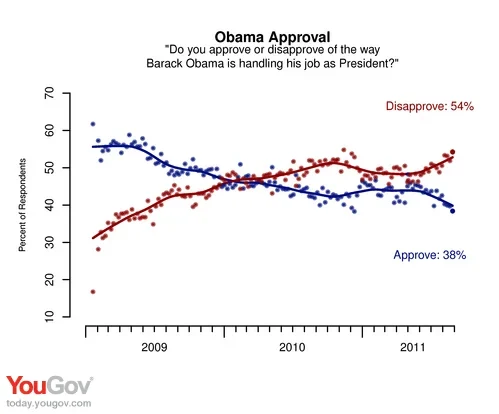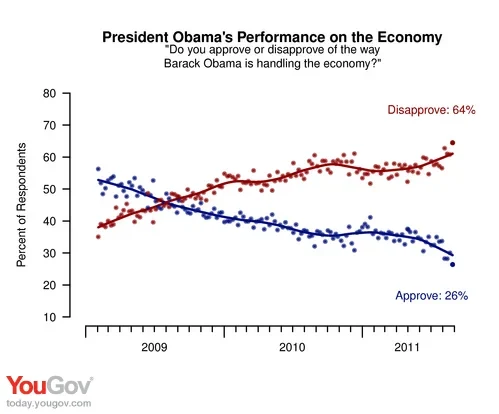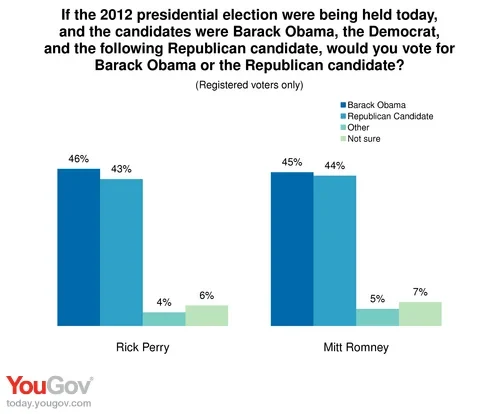The stagnating economy continues to force President Barack Obama’s approval rating lower: this week’s Economist/YouGov Poll results give him a new all-time low and makes his re-election campaign much more difficult. Just 38% approve of the way he is handling his job, while 54% disapprove.

The President’s previous low of 39% came at the end of last year, after the “shellacking” he admitted he took from the voters in the mid-term Congressional elections.
He also is having serious difficulties when it comes to the public’s perceptions of his handling of the economy, which continues to be the country’s greatest concern. Only 26% approve, another all-time low.

Barely half of Democrats approve of the President’s performance on the economy. And while 72% of Democrats give the President a positive rating on his overall job performance, independents, who will be critically important in determining the 2012 election results, disapprove 56% to 36%.
However, Democratic voters still overwhelmingly favor the President as their party’s standard bearer in 2012, however. By 74% to 10%, those who say they will vote in a Democratic presidential primary or caucus next year say they want Obama, not anyone else to be the party’s nominee.
Americans overall distrust the President: 58% believe he says mostly what he thinks people want to hear, and not what he really believes — matching the all-time high on this measure.
For the first time in Economist/YouGov Polls, two Republicans contenders run almost even with the President in November 2012 matchups. Including those registered voters who say they lean towards one candidate or the other, Texas Governor Rick Perry now has only a 3-point deficit against the President, while former Massachusetts Governor Mitt Romney trails by only one point. Effectively, right now both those races are too close to call.

Photo source: Press Association






